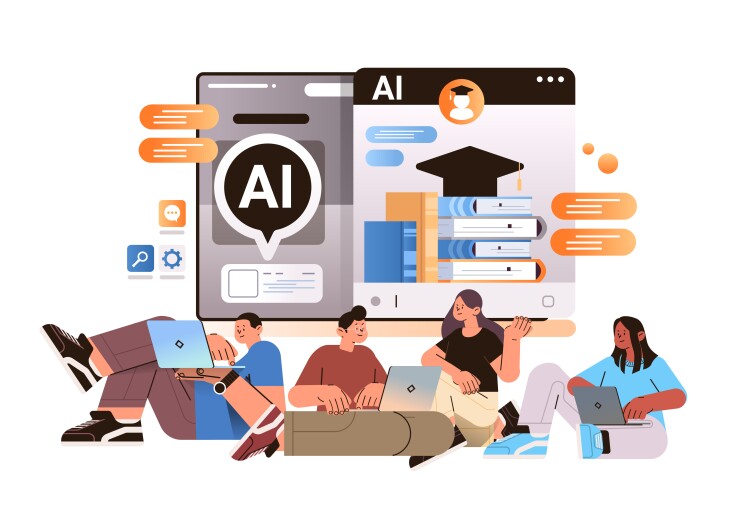Accounting students can measure their AI acumen and knowledge against others like them in a contest that will be held by CPA education platform TrueUp.
Vince LoRusso, CEO and co-founder of TrueUp, has long had a love for competitions and games since, when in college, he took part in one hosted by PwC. From there he organized a similar contest through his school's accounting club. After a stint at PwC in Buffalo he eventually founded TrueUp which, itself, has a wide variety of educational games for accounting students, as well as creating similar content for CPE platforms.
This competition, called TrueUp's

"I love education, I love content creating, and I love technology, and I love accounting, so all of that comes together," he said.
The event will be held in partnership with accounting automation solutions provider
The contest itself is a two-week, 100% virtual competition that opens on Oct. 21. Student teams (four students max, plus one optional faculty advisor) are matched with a mentor from a nearby accounting firm who provides guidance and assistance with the challenges.
Students will begin by completing four games on TrueUp's website created specifically for this contest, each one taking about fifteen to twenty minutes to complete. The games provide an initial education on AI and how it relates to accounting, with the first going over the fundamentals of AI itself and the other three going over its application to their chosen careers. The games themselves assume a scenario where, in the year 2050, the economy is in major crisis due to poor AI implementation in the past, particularly at the fictional company FastLedger, which is a major company in the future.
Each time they finish a game, they will have the option to complete an additional exercise using a free AI tool to complete tasks such as research (e.g. accounting guidance), analysis (e.g. 10-K filings), drafting a company policy (e.g. new customer acceptance), and audit support (e.g. anomaly detection). While not strictly necessary, students completing the exercises will be exposed to more AI tools and better able to use their selections in the final video submission, according to LoRusso.
Once they finish all games teams then make a 10-minute video presentation that, functionally, is an AI Adoption Plan. This, he said, is the main part of the contest; the games and exercises are more meant to mentally prepare students for making the video. Students will pitch the use of AI to the partners and managers (the virtual judges) at their pretend accounting firm as either a new service offering to businesses or to create efficiencies internally at their firm. This will include recommending specific AI tools (that they try in the exercises mentioned above), explaining the tools' capabilities, their benefits, associated risks, whether it is a new revenue stream to offer firm clients or used internally to create an efficiency, and the overall impact on human talent (staffing and the role and skills of the future accountant). Students will be able to use their assigned firm mentor as a resource to prepare their presentation (e.g. ask the professional questions, practice their presentation, get ideas.)
Final submissions for this video will be due Nov. 4. The judges will watch the videos and announce a winner about one week later. LoRusso said teams will be judged on accuracy, creativity and overall presentation skill.
"So not from a quantitative standpoint, but qualitative. We want the students thinking, 'Okay, well, this is a great tool. What's it going to cost and what's the benefit? And then how do we re-skill?'" he said.
When asked, he said students theoretically can use AI to make their video, saying "there's no way to really prevent them," but added that this is why a lot also hinges on presentation. If students do use AI, he said they should work that fact into the presentation itself.
"Because you could even tell in a student's voice whether they're reading from ChatGPT or they put in actual thought… One of the key skills that has always [needed] is critical thinking, but now more than ever. And that's why [we say] 'okay, we'll let you use AI. But, you know, give us a review of what the AI output was, right? Tell us your thoughts on their output,'" he said.
The top 3 teams will receive a cash prize, with $3,000 having been provided by Digits and qCommunity. The winners will also get free software access to Digits.
In order to qualify, students must be registered at an accredited university based in the U.S. and be concentrated in accounting, information systems, finance, or business as a major. Students from any class level are welcome. Registration opens Sept. 1, 2025. Contestants must register before October 14, 2025.





